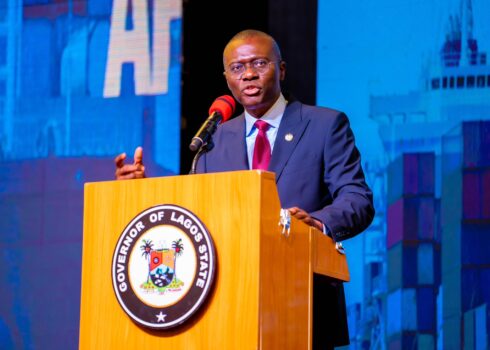 Lagos State Governor Babajide Sanwo-Olu has officially signed the Lagos Electricity Bill into law, marking a significant milestone in the state’s energy sector.
Lagos State Governor Babajide Sanwo-Olu has officially signed the Lagos Electricity Bill into law, marking a significant milestone in the state’s energy sector.
The signing ceremony took place at Lagos House in Alausa, Ikeja, with Deputy Governor Kadri Hamzat, members of the State House of Assembly, and members of the State Executive Council in attendance.
Governor Sanwo-Olu lauded the State House of Assembly for the expedited passage of the bill, emphasizing its potential to transform the socio-economic landscape of Lagos. He highlighted that the bill, which had been under development for years, would now ensure a steady power supply for residents of the state.
“This law represents a monumental achievement in our journey toward reliable electricity access for all Lagosians,” Sanwo-Olu said.
State Commissioner for Energy and Mineral Resources, Biodun Ogunleye, outlined the benefits of the new law, including the establishment of an additional grid for Lagos and the elimination of blackouts. “This initiative will provide regular power supply and create opportunities for communities to develop power plants through a Host Community Development Trust Fund,” he noted.
The Lagos State Electricity Law 2024 aims to address long-standing challenges in the energy sector and establish a sustainable electricity framework for the state. Key highlights of the law include:
- Creation of a Lagos Electricity Market: A technically sound and financially viable market regulated to ensure equitable access.
- Reliable and Affordable Power Supply: Initiatives to ensure access to affordable and sustainable electricity for all citizens.
- Promotion of Renewable Energy: Encouraging diverse energy sources and energy efficiency.
- Attracting Investments: Fostering competition and innovation in the electricity sector.
- Electrifying Underserved Areas: Addressing energy disparities and contributing to the state’s sustainable development goals.
Governor Sanwo-Olu expressed confidence that the law would catalyze economic growth, industrial expansion, improved quality of life, and environmental sustainability for Lagosians.


Nigeria Senate Forms Committee To Address Tax Reform Bills
Senate Confirms Lieutenant General Olufemi Oluyede As COAS
Nigeria Police Arraign 113 Foreign Nationals For Cybercrime In Abuja
TETFund To End Foreign Scholarship Funding By January 2025